
lampinen.github.io

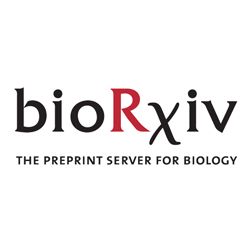
w/ @fepdelia.bsky.social, @hopekean.bsky.social, @lampinen.bsky.social, and @evfedorenko.bsky.social
Link: www.pnas.org/doi/10.1073/... (1/6)

deepmind.google/sima

deepmind.google/sima
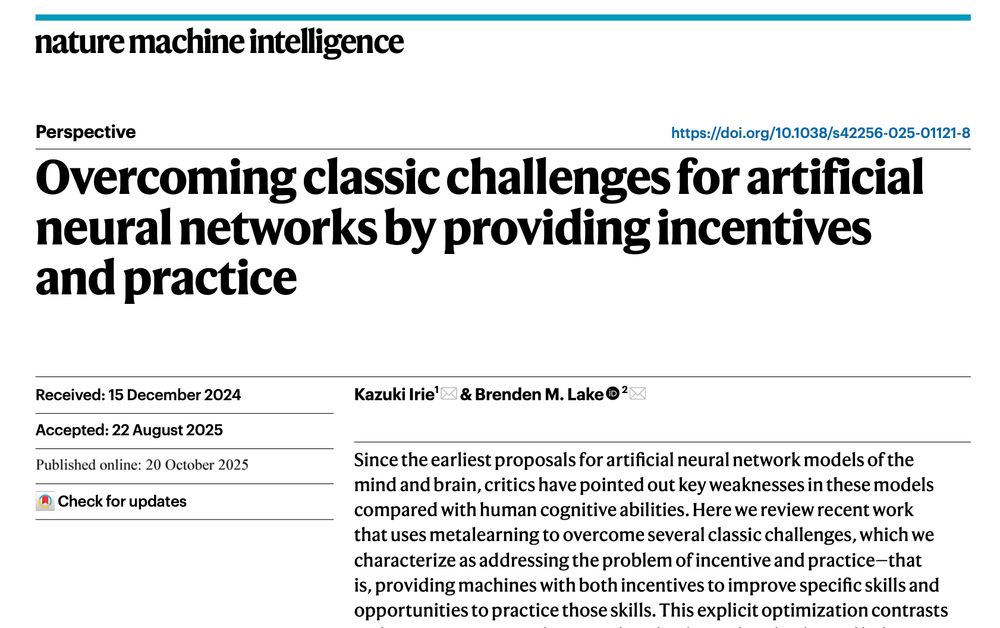

Language models (LMs) are remarkably good at generating novel well-formed sentences, leading to claims that they have mastered grammar.
Yet they often assign higher probability to ungrammatical strings than to grammatical strings.
How can both things be true? 🧵👇

Language models (LMs) are remarkably good at generating novel well-formed sentences, leading to claims that they have mastered grammar.
Yet they often assign higher probability to ungrammatical strings than to grammatical strings.
How can both things be true? 🧵👇

Kudos to @sucholutsky.bsky.social @lukasmut.bsky.social for leading this!
Kudos to @sucholutsky.bsky.social @lukasmut.bsky.social for leading this!
🧠🤖
We propose a theory of how learning curriculum affects generalization through neural population dimensionality. Learning curriculum is a determining factor of neural dimensionality - where you start from determines where you end up.
🧠📈
A 🧵:
tinyurl.com/yr8tawj3

🧠🤖
We propose a theory of how learning curriculum affects generalization through neural population dimensionality. Learning curriculum is a determining factor of neural dimensionality - where you start from determines where you end up.
🧠📈
A 🧵:
tinyurl.com/yr8tawj3


![What do representations tell us about a system? Image of a mouse with a scope showing a vector of activity patterns, and a neural network with a vector of unit activity patterns
Common analyses of neural representations: Encoding models (relating activity to task features) drawing of an arrow from a trace saying [on_____on____] to a neuron and spike train. Comparing models via neural predictivity: comparing two neural networks by their R^2 to mouse brain activity. RSA: assessing brain-brain or model-brain correspondence using representational dissimilarity matrices](https://cdn.bsky.app/img/feed_thumbnail/plain/did:plc:e6ewzleebkdi2y2bxhjxoknt/bafkreiav2io2ska33o4kizf57co5bboqyyfdpnozo2gxsicrfr5l7qzjcq@jpeg)
Genie 3 is a new frontier for world models: its environments remain largely consistent for several minutes, with visual memory extending as far back as 1min. These limitations will only decrease with time.
Welcome to the future.🙌
deepmind.google/discover/blo...
Genie 3 is a new frontier for world models: its environments remain largely consistent for several minutes, with visual memory extending as far back as 1min. These limitations will only decrease with time.
Welcome to the future.🙌
deepmind.google/discover/blo...


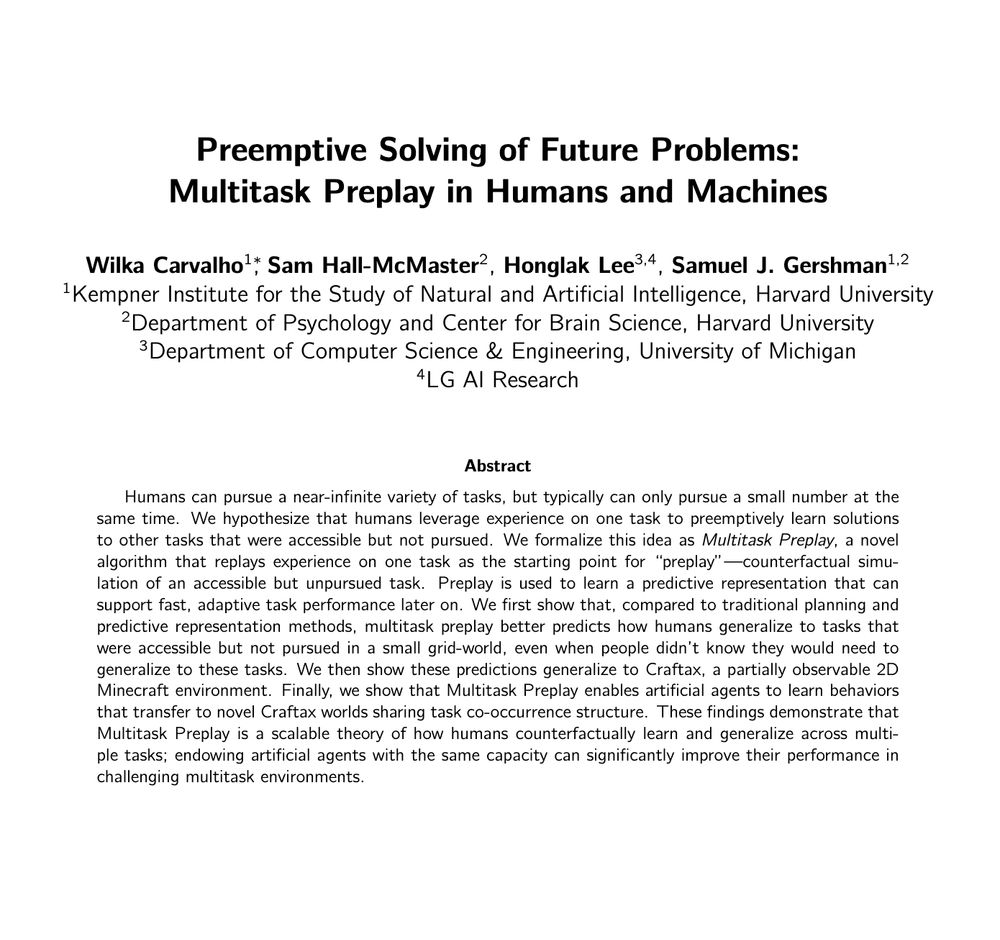
Work with @zejinlu.bsky.social @sushrutthorat.bsky.social and Radek Cichy
arxiv.org/abs/2507.03168
Work with @zejinlu.bsky.social @sushrutthorat.bsky.social and Radek Cichy
arxiv.org/abs/2507.03168
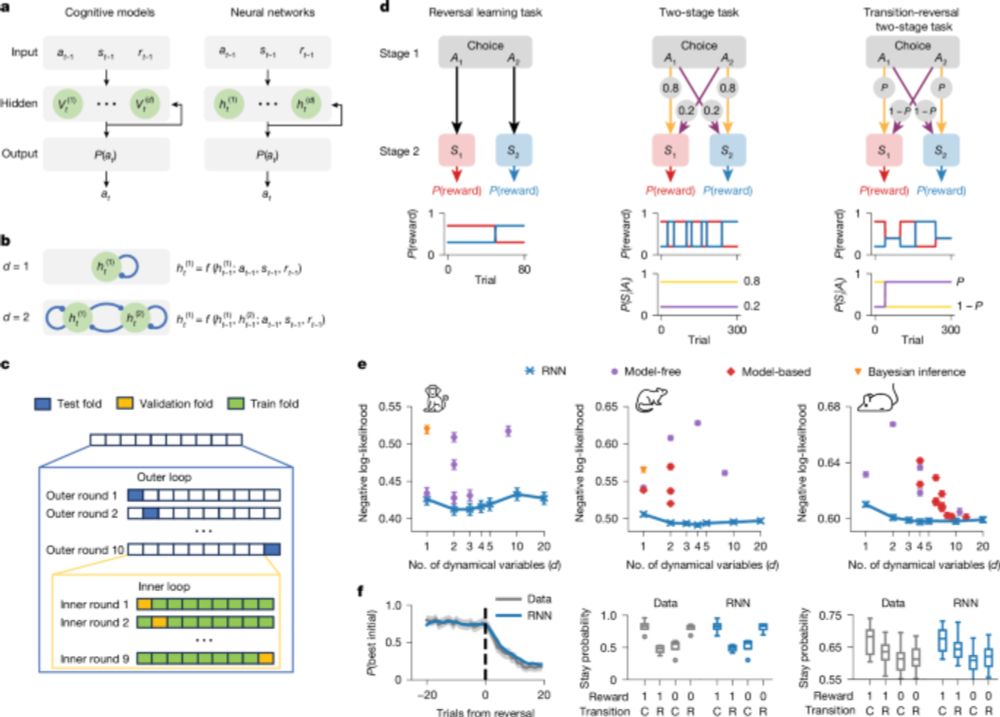
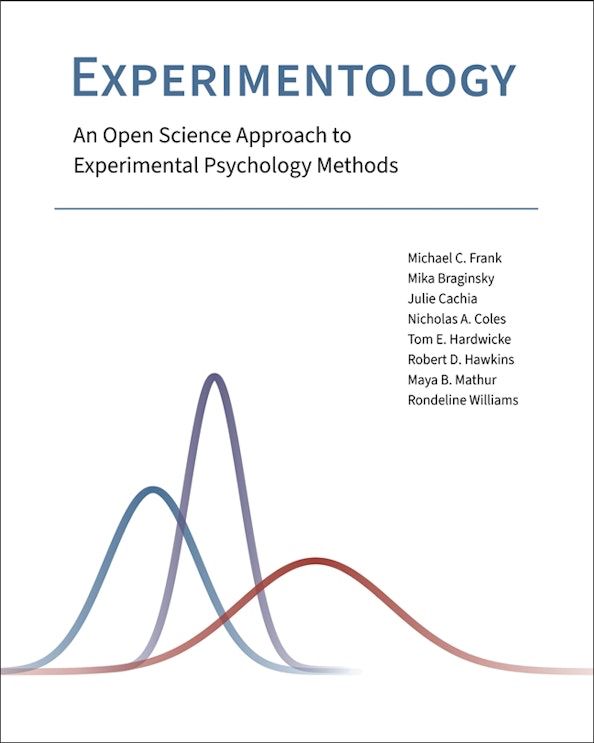
Our work explains this & *predicts Transformer behavior throughout training* without its weights! 🧵
1/
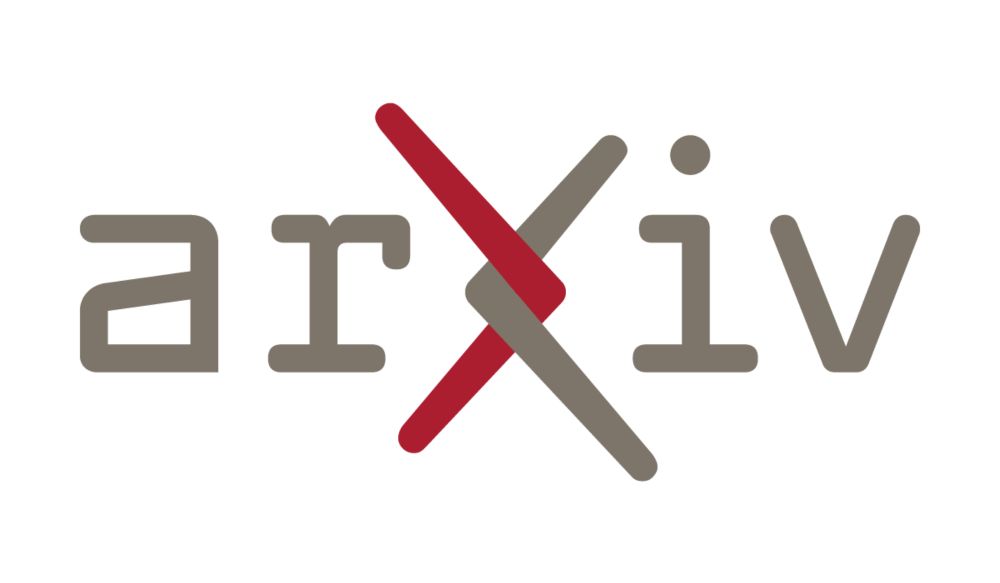
authors.elsevier.com/a/1lIFK4sIRv...
🧵1/4

authors.elsevier.com/a/1lIFK4sIRv...
🧵1/4

